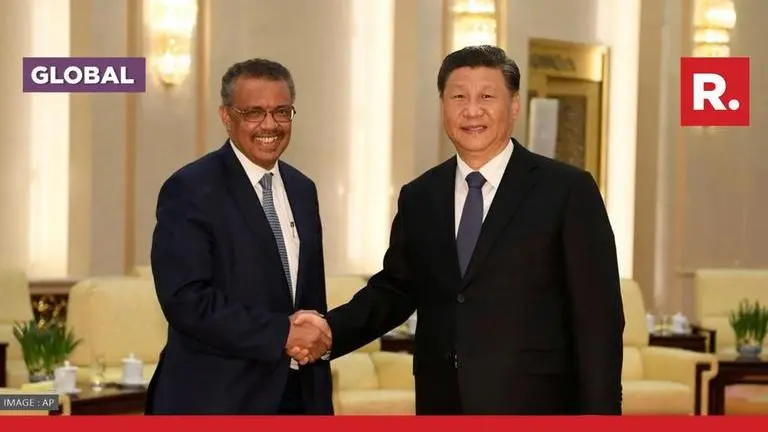Updated 11 February 2023 at 14:36 IST
Investigation claims China heavily influenced WHO to hide the origins of COVID-19
An investigation has revealed efforts by Beijing to control the WHO's decision-making and sabotage investigations while hiding the origins of COVID.
- World News
- 4 min read

A report has claimed that World Health Organisation (WHO) officials missed the chance to stop COVID-19 from turning into a pandemic because of an "aggressive" influence campaign run by the Chinese government which comprised efforts by Beijing to control the agency's decision-making, sabotage investigations and even install officials.
The investigation was done by United Kingdom-based The Sunday Times and it claimed that the WHO's independence had been hampered prior to the global spread of the deadly Coronavirus in early 2020. The report claimed that WHO failed to challenge the misinformation campaign by China and delayed in declaring an emergency and worked against travel bans on China. The investigation also suggested that China used financial leverage on poorer nations to install favoured people in roles.
Notably, the COVID-19 pandemic claimed more than 4.3 million lives worldwide. It has also been suggested that WHO officials agreed to a 'backroom deal' with Beijing to water down the inquiry into the origins of COVID-19. This meant steering scientists away from the theory Coronavirus actually escaped from a Wuhan laboratory, rather than coming from wild animals in a wet market in the city in December 2019.
Decision makers influenced by China: Report
The theory was initially dismissed as 'extremely unlikely' by the WHO but now experts say there might have been 'human error' at the lab, reported UK's Daily Mail. Pressure is coming from the US to look into the potential cause.
Advertisement
It is suggested China has for some time been using financial leverage over poorer nations to install its preferred figures into key roles at the WHO as well as other UN-governed bodies. Among the top decision makers at the WHO is director-general Tedros Adhanom Ghebreyesus who visited Chinese President Xi Jinping in January 2020, two months before the pandemic began.
Who has the report blamed?
The former Ethiopian Foreign Minister is said to have used his role to make further appointments that were preferable to China, including making Zimbabwean dictator Robert Mugabe a goodwill ambassador. Between 2000 and 2012, there were around 130 official Chinese finance projects in Zimbabwe, with some totaling hundreds of millions of pounds to build hydroelectric dams and provide agricultural machinery.
Advertisement
Professor Richard Ebright, a fellow of America's Infectious Disease Society, told the Times that China's efforts had a 'decisive role' in affecting the agency's failure to act. "There was no scientific or medical or policy justification for the stance that the WHO took in January and February of 2020. That was entirely premised on maintaining satisfactory ties to the Chinese government," he said. "Through that process, the WHO actively resisted and obstructed efforts by other nations to implement effective border controls that could have limited the spread, or even contained the spread of the outbreak," he added.
WHO's reaction to the report
A spokesperson for the organisation hit back at the claims saying, 'WHO's top priority is ending the acute stage of the COVID-19 pandemic.' They later added: "The Sunday Times piece is riddled with inaccuracies, falsehoods, half-truths, unsubstantiated assertions, willful distortions and the intentional omission of anything that didn’t fit the pre-determined premise of the story."
"There have been several independent reviews of the global response to COVID-19, including the work of WHO, and these reviews note the work of the organisation and the early warnings we issued," WHO added.
"Frankly, WHO's top priority is ending the acute stage of the COVID-19 pandemic and we are supporting countries to implement comprehensive, evidence-based responses, based on the consistent use of public health measures and the equitable use of life-saving tools including vaccines," continued the WHO spokesperson.
"In particular, we are working to enable all countries to vaccinate health workers, older people and other vulnerable groups, at a time when 75 percent of vaccinations have taken place in only 10 countries," WHO asserted.
Published By : Digital Desk
Published On: 11 February 2023 at 14:36 IST
